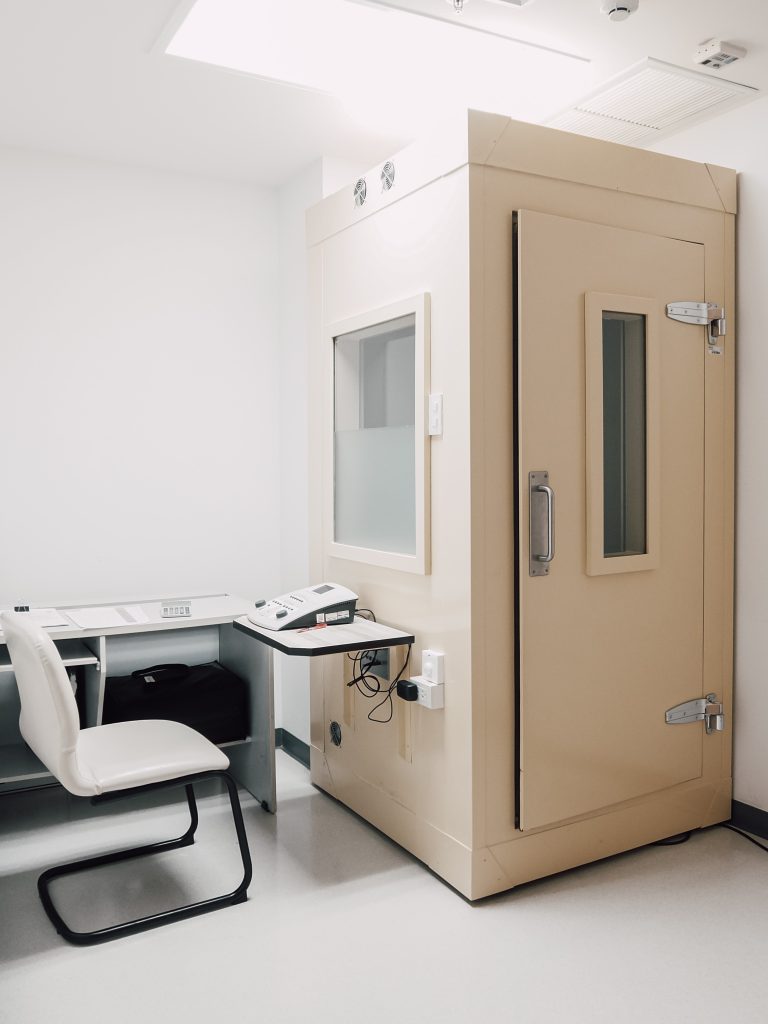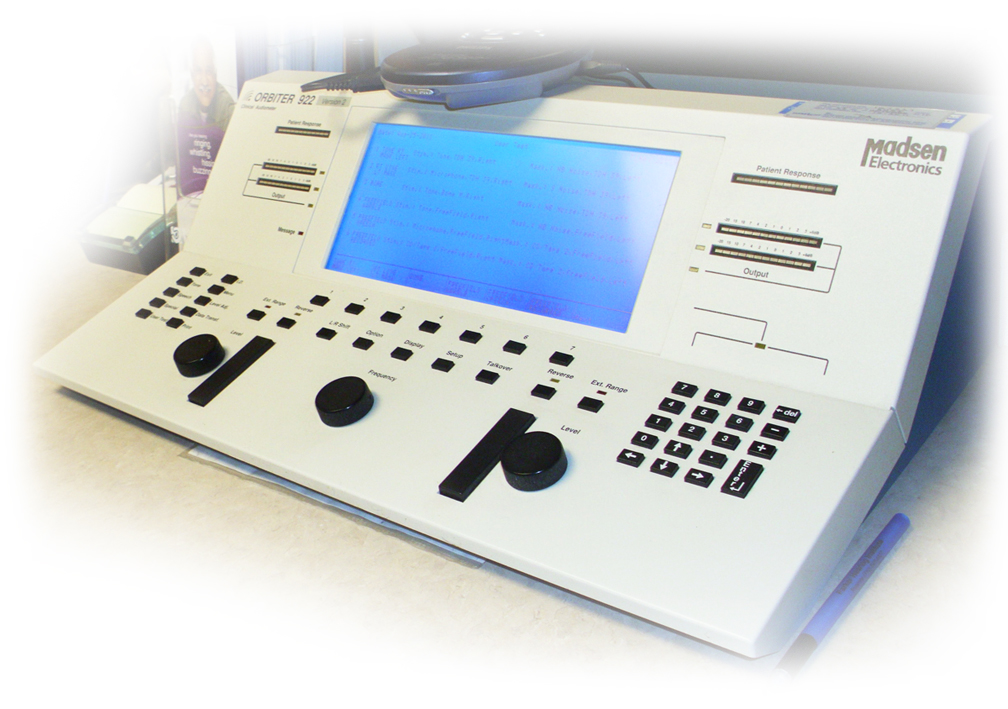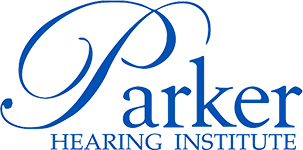Hearing Test
A hearing test is an examination that maps out a person’s sense of hearing. The results of a hearing test are marked on an audiogram. At Parker Hearing Institute, our hearing tests are conducted by licensed Audiologist.
What to expect
Each hearing test begins with a brief discussion with your audiologist. You will go over some “lifestyle” questions that are designed to discover health and enviromental factors which may effect your hearing health. During this conversation, the audiologist will also go over your personal hearing problems or concerns and ask you about goals for the appointment. New patients will be asked to complete a questionnaire before their appointment to prepare the audiologist for this discussion.
Next, the audiologist will look into your ears with an otoscope to ensure your ears are free of wax, your eardrum is intact, and there are no infections. We can do this by video so you can SEE you ear canal!
Following otoscopy, OAE, tympanometry, and reflex tests will be run to paint a picture of your middle and inner ear health. You do not have to do anything for these tests – the machine will do all the work.
Finally, you will be placed in a booth for the interactive portion of the hearing test. In the booth, you will repeat words and respond to tones. This portion of the exam will measure the loudness and clarity of your hearing.
After all the exams have been run, the audiologist will consult you about your results. If necessary, the audiologist can make a referral for follow up care.

How long is a hearing test?
The hearing test itself usually takes about 35 minutes. We, however, schedule audio (hearing test) appointments for 1-hour so the audiologist and patient have time for consultation.
Hearing tests: Audiologist vs. Hearing Aid Dispensers
There is a HUGE difference between hearing tests done by a hearing aid dispenser and hearing tests done by an audiologist. At Parker Hearing Institute, your providers are licensed audiologists.
A hearing aid dispenser can only perform a hearing test to dispense and fit hearing aids. In addition, hearing aids dispensers can only work with adults.
An audiologist can do much more. Audiologist are trained to perform diagnostic hearing aid exams on both children and adults. Audiologist can work with medical teams to monitor and evaluate at risk patients. This can include patients with vertigo, tinnitus, hyperacusis, or even patients at risk for ototoxicity. Essentially, audiologists can preform hearing tests to dispense and fit hearing aids AND diagnose and treat hearing loss.
CPT Codes for testing
The CPT codes found below are the typical procedures included in our full diagnostic hearing test. Most insurances will cover most, if not all, of a hearing test once a year. We require prior authorization for all applicable CPT codes if you would like your insurance to cover your exam. PPO or cash pay patients do not need prior authorization. For more information, please see our Service Pricing page.
CPT Codes for Adults:
- Tympanometry and Reflex Threshold – 92550
- Air, Bone & Speech Test – 92557
- Loudness Balance Test – 92562
- Otoacoustic Emissions – 92588
CPT Codes for Children (8+ years old)
- Tympanometry and Reflex Threshold – 92550
- Air, Bone & Speech Test – 92557
- Loudness Balance Test – 92562
- Conditioning Play Audiometry – 92582
- Select Picture Audiometry – 92583
- Otoacoustic Emissions – 92588

A hearing test is an examination that maps out a person’s sense of hearing. The results of a hearing test are marked on an audiogram. At Parker Hearing Institute, our hearing tests are conducted by licensed Audiologist.
What to expect
Each hearing test begins with a brief discussion with your audiologist. You will go over some “lifestyle” questions that are designed to discover health and enviromental factors which may effect your hearing health. During this conversation, the audiologist will also go over your personal hearing problems or concerns and ask you about goals for the appointment. New patients will be asked to complete a questionnaire before their appointment to prepare the audiologist for this discussion.
Next, the audiologist will look into your ears with an otoscope to ensure your ears are free of wax, your eardrum is intact, and there are no infections. We can do this by video so you can SEE you ear canal!
Following otoscopy, OAE, tympanometry, and reflex tests will be run to paint a picture of your middle and inner ear health. You do not have to do anything for these tests – the machine will do all the work.
Finally, you will be placed in a booth for the interactive portion of the hearing test. In the booth, you will repeat words and respond to tones. This portion of the exam will measure the loudness and clarity of your hearing.
After all the exams have been run, the audiologist will consult you about your results. If necessary, the audiologist can make a referral for follow up care.
How long is a hearing test?
The hearing test itself usually takes about 35 minutes. We, however, schedule audio (hearing test) appointments for 1-hour so the audiologist and patient have time for consultation.
Hearing tests: Audiologist vs. Hearing Aid Dispensers
There is a HUGE difference between hearing tests done by a hearing aid dispenser and hearing tests done by an audiologist. At Parker Hearing Institute, your providers are licensed audiologists.
A hearing aid dispenser can only perform a hearing test to dispense and fit hearing aids. In addition, hearing aids dispensers can only work with adults.
An audiologist can do much more. Audiologist are trained to perform diagnostic hearing aid exams on both children and adults. Audiologist can work with medical teams to monitor and evaluate at risk patients. This can include patients with vertigo, tinnitus, hyperacusis, or even patients at risk for ototoxicity. Essentially, audiologists can preform hearing tests to dispense and fit hearing aids AND diagnose and treat hearing loss.
CPT Codes for testing
The CPT codes found below are the typical procedures included in our full diagnostic hearing test. Most insurances will cover most, if not all, of a hearing test once a year. We require prior authorization for all applicable CPT codes if you would like your insurance to cover your exam. PPO or cash pay patients do not need prior authorization. For more information, please see our Service Pricing page.
CPT Codes for Adults:
- Tympanometry and Reflex Threshold – 92550
- Air, Bone & Speech Test – 92557
- Loudness Balance Test – 92562
- Otoacoustic Emissions – 92588
CPT Codes for Children (8+ years old)
- Tympanometry and Reflex Threshold – 92550
- Air, Bone & Speech Test – 92557
- Loudness Balance Test – 92562
- Conditioning Play Audiometry – 92582
- Select Picture Audiometry – 92583
- Otoacoustic Emissions – 92588

